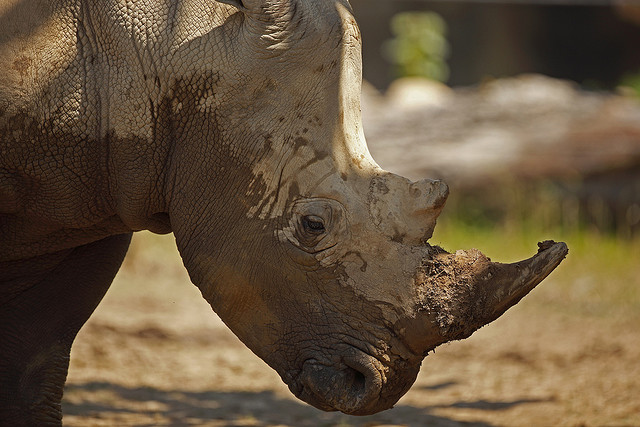
Kenya’s rapidly thinning rhino population gets another weapon in its arsenal in the fight against illegal wildlife trafficking. WWF Kenya has announced that it will give over 1,000 microchips and 5 scanners to the Kenya Wildlife Service (KWS). The microchips will be instrumental in boosting active rhino monitoring and auditing stockpiles of seized rhino horns.
The microchips will be implanted in 1,000 rhinos inside the Kenyan borders. It can be used in tracking an illegally acquired rhino horn as well as the animal itself in case the horn is severed. The tracking system will enable absolute traceability of any rhino implanted with the microchip. WWF says the technology will protect animals on-site as well as support anti-poaching efforts on regional and national level.
The microchip tracking technology and equipment are worth over $15,000. However, the cost of illegal rhino horn trade and poaching is greater. The black market for rhino horn is pushing rhino populations to the edge. According to Treehugger, the rate of rhino poaching has gone up to an astronomical 5000% since 2007. This is not surprising given that rhino horns can sell for over $60,000 per kilogram, easily more valuable than gold. Most destination countries value illegal rhino horn for its supposed medicinal properties. Some common misconceptions are that rhino horns cure hangovers and terminal illnesses like cancer. However, this is nothing more than a misconception because the horns are made of keratin, the same material from which human fingernails and hair are made of.
Officials have responded by trying different strategies to protect rhino populations. Aside from microchipping, another strategy is to poison the rhino horns. This way, people who buy them for their purported medicinal benefits will actually be sick and avoid similar illegal purchases in the future. Another trick is to dye the rhino horns so they will be highly visible and easily traced en route to black markets.
And with the security measures officials have put in place to defend the rhino against illegal wildlife traffickers, poachers have become increasingly aggressive as well as technologically advanced in their illegal activities. KWS said, “With poachers getting more sophisticated in their approach it is vital that conservation efforts embrace the use of more sophisticated technology to counter the killing of wildlife.” In fact, the IUCN has officially declared the Western Black rhino as extinct this month, with conservationists laying the blame on poaching. The IUCN warns that the Northern White and the Javan rhinos will have the same fate unless conservation and protective measures are strengthened.
WWF stated that “Furthermore, investigators will be able to link any poached case to a recovered or confiscated horn and this forms crucial evidence in court contributing towards the prosecution’s ability to push for sentencing of a suspected rhino criminal. These technologies are now being used internationally in support of criminal justice responses to wildlife crime as well as strengthening inter-agency collaborations (between customs, police, justice, wildlife agencies and defense).”
WWF hopes the technology will trace and expose the chain of illegal rhino horn trade, ultimately resulting in dismantling international illegal wildlife trafficking networks.




Leave a Comment